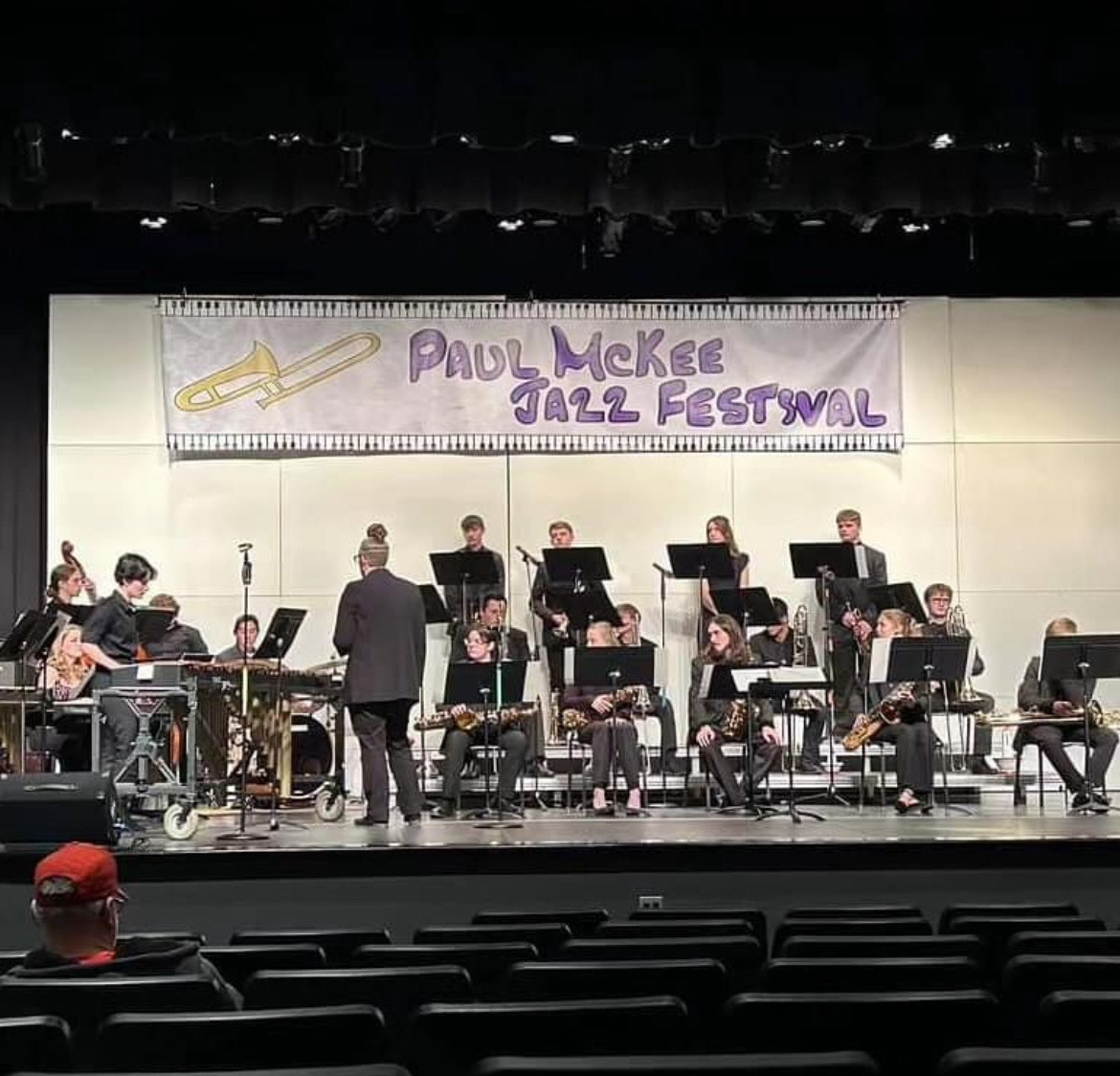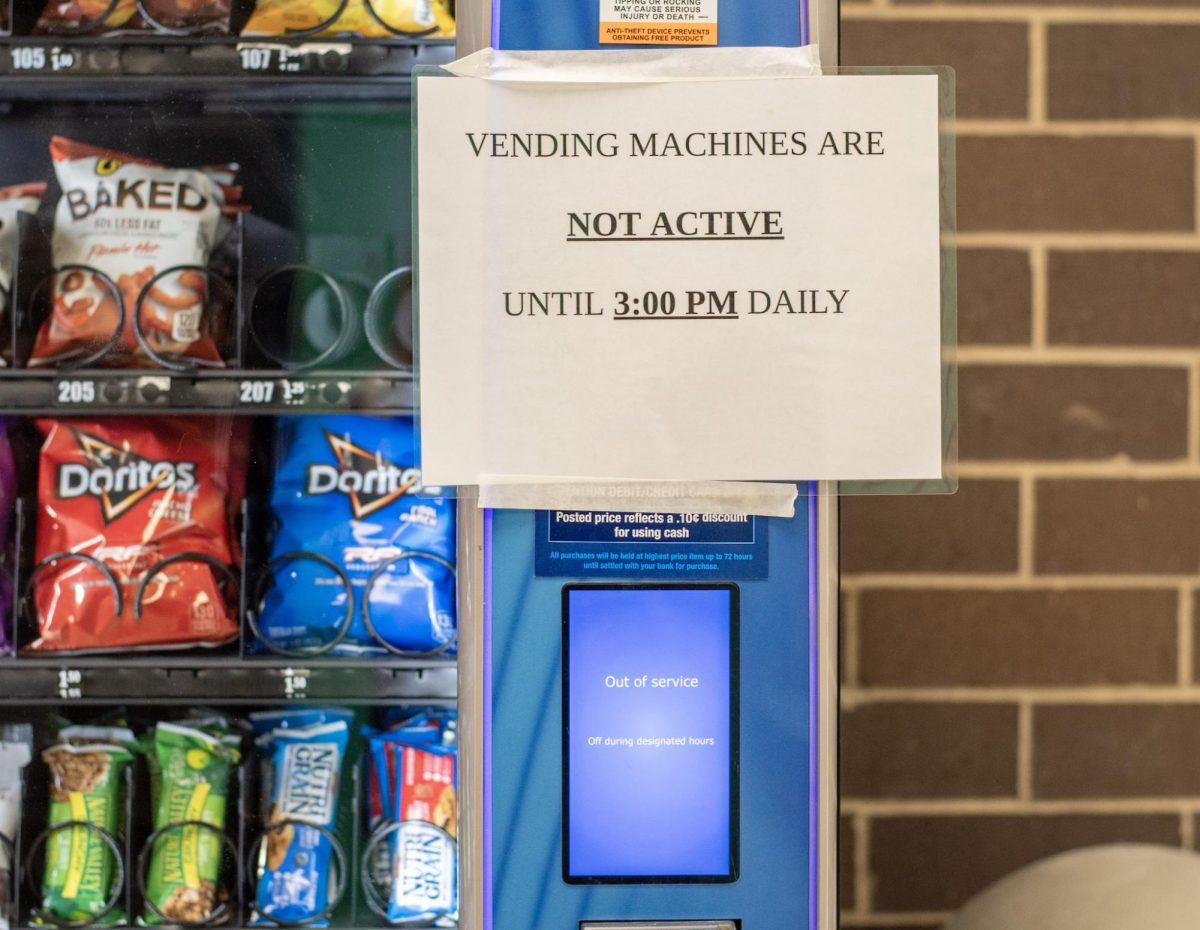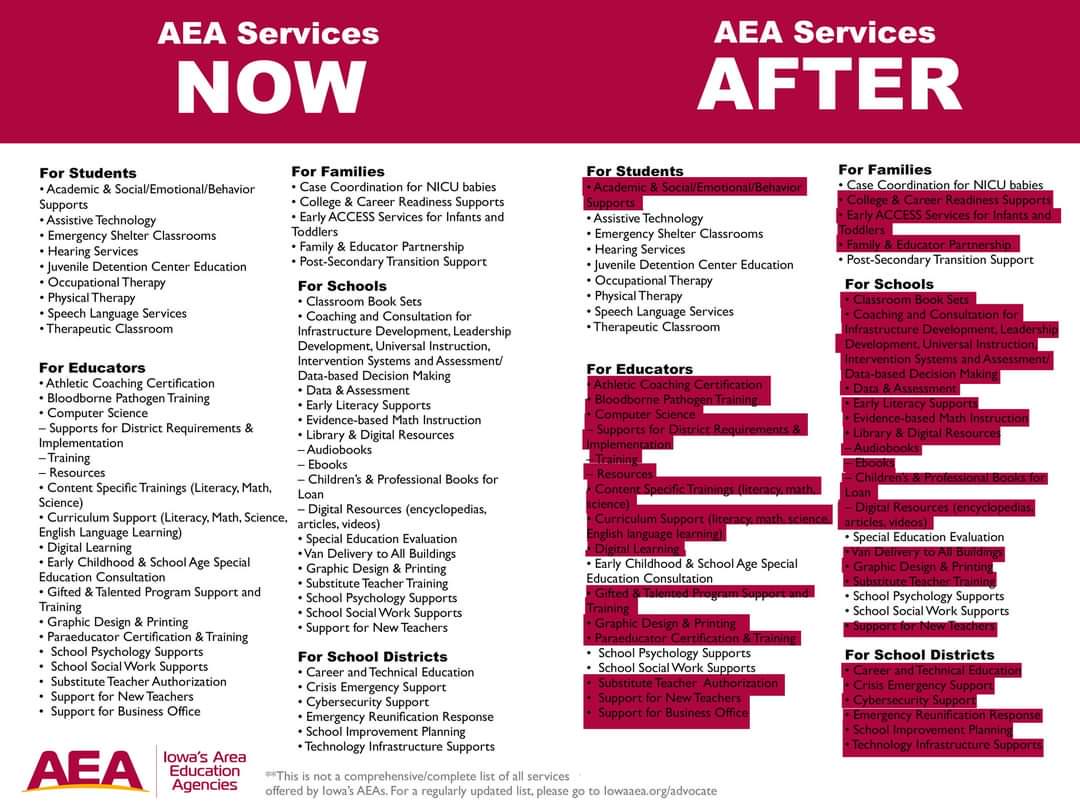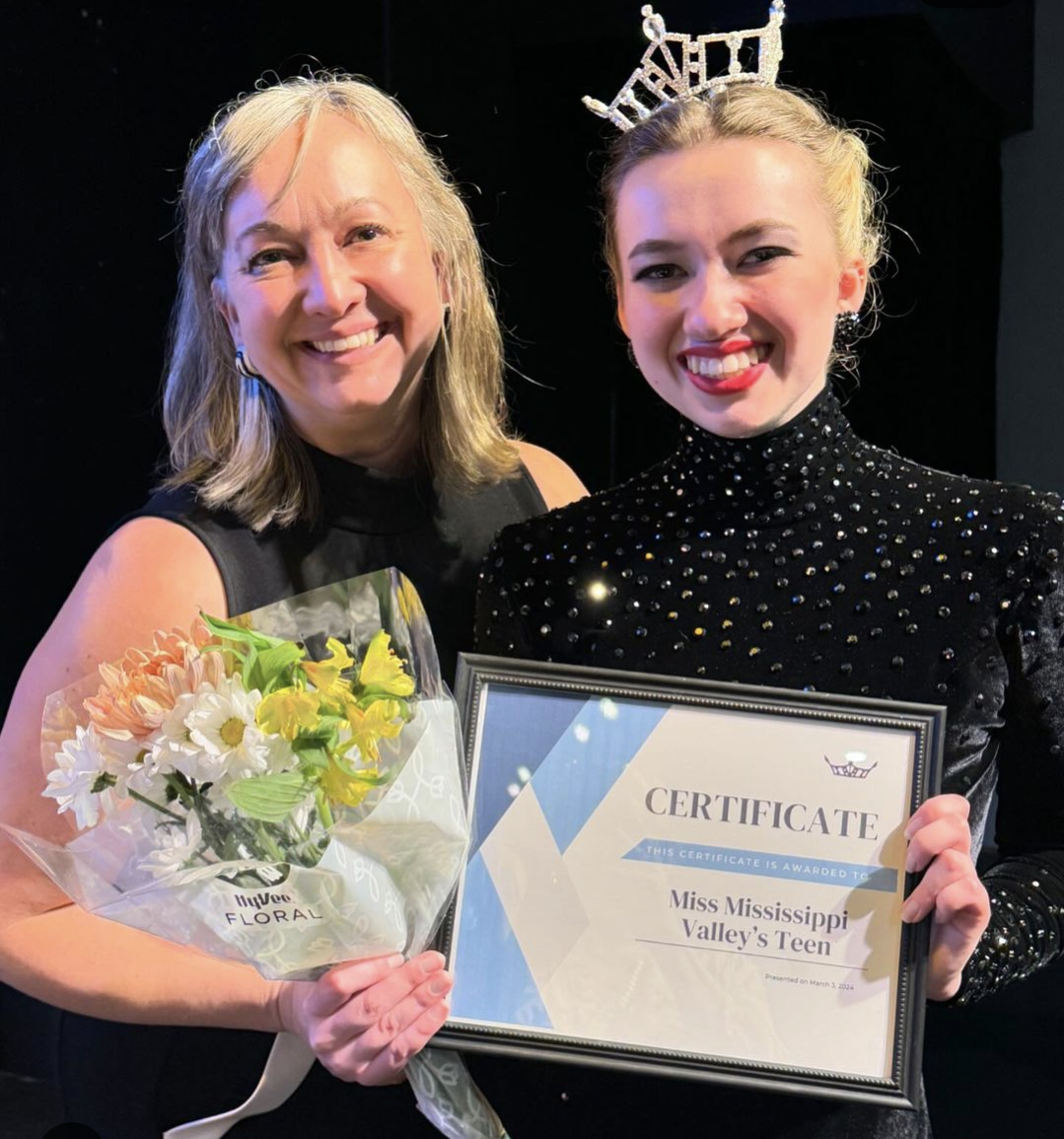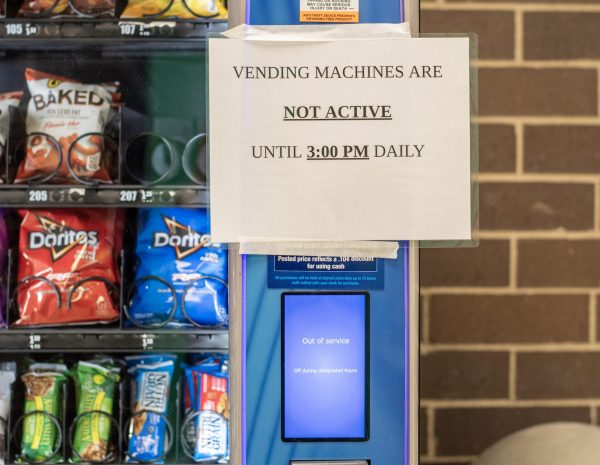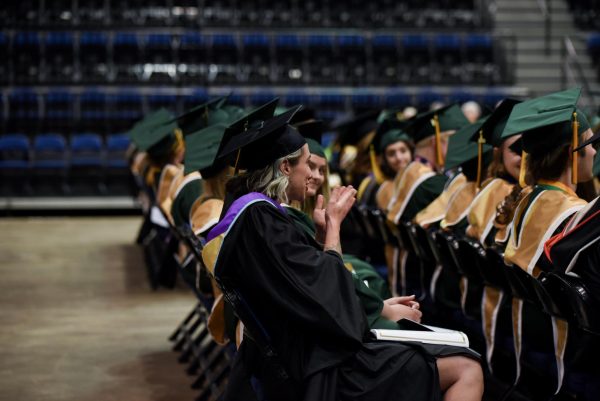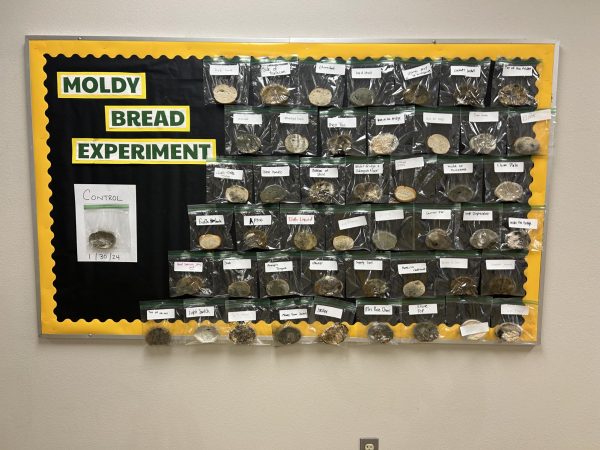Students take advantage of AP courses
Student exams begin in May, with more than 25 AP courses represented
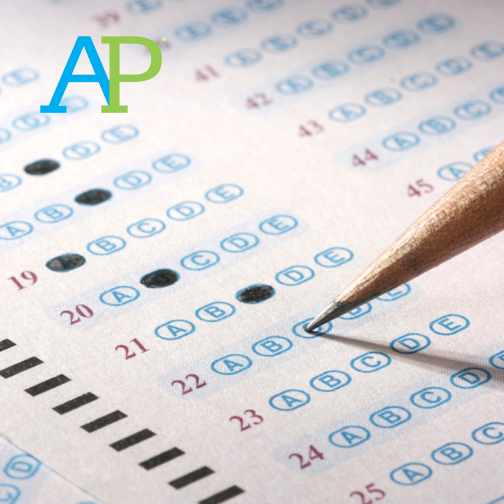
Photo provided by Anna Reinhart
College success, saving money, and saving time — three goals lots of students want.
For students at Kennedy, Advanced Placement classes offer an opportunity to get a head start in college, but they’re also advantages that depend on one thing: the passing or failing of the AP exams.
This spring, AP exams run for about three weeks, from May 2 to May 20. As a whole, students from Kennedy will be taking exams from over 25 AP courses.
Students will take exams at Kennedy, the Educational Leadership and Support Center (ESLC), or the Veteran’s Memorial Building, depending on which exam is being taken.
For many students, these exams bring stress, success, and satisfaction, but the risk is that with hard work, they also bring thousands of dollars of savings from classes students won’t have to take in college.
Lauren Gifford, freshman at Iowa State, saw this success as she began college last fall.
“Because of AP classes, I can graduate college a semester early even with the extremely light load of class I have in my first year in college,” Gifford said. “They really allowed me to ease into college life and I still see the advantages from classes I took two or three years ago.”
Kennedy sophomore Sarah Poyer is going to take the AP Psychology exam along with the AP European History exam.
“I’ve been using review books to prepare,” Poyer said. “I want to get a five to get college credit and show my future college that I’m motivated.”
AP Psychology and AP Research teacher Dana Melone believes that the best ways for students to prepare for the exams are to “space your studying out” and make a schedule and “stick to it.”
“I advise students not to try to study everything because you don’t need to study what you already know,” Melone said.
Melissa Osborn, AP Human Geography and AP European History teacher, knows a thing or two about lightening up the load and helping students succeed.
“Success in an AP class comes when students find two main things, motivation and organization,” Osborn said. “Once students get their stuff together, they can really start to move toward their final goal of passing AP exams.”
Osborn feels that organization for AP courses isn’t all about color coding and highlighting notes perfectly. It is more about knowing where your notes are and what assignments you need to complete.
Alex Neff, AP statistics teacher, noticed that this idea of organization also applies to the exams. His students struggle the most with the written part of the AP exams when they begin to “over explain” their ideas.
“With over explanation, students essentially erase the perfectly good answer they had already written,” Neff said.
Both AP teacher’s advice for students was to be careful, cautiously read the question, analyze each part that needs to be answered, prepare well in advance, and be dedicated until the very end.
“‘Enduring to the end, that is one thing I see especially in my seniors,” Neff said. “They decide to stop caring as soon as the worst of the senioritis kicks in. Probably the worst time to do that.”
Sticking with one month of hard work is better than wasting a $92 exam fee and missing out on the saving of hundreds of dollars passing the exam can save, Neff argues.
If that logic doesn’t make students want to succeed, then maybe the AP Ghosh program will. This program gives students money back when they pass AP exam(s), offering more money for higher scores.
Your donation will support the student journalists of Kennedy High School - IA. Your contribution will go towards the purchase of a new lens for our photographers.

